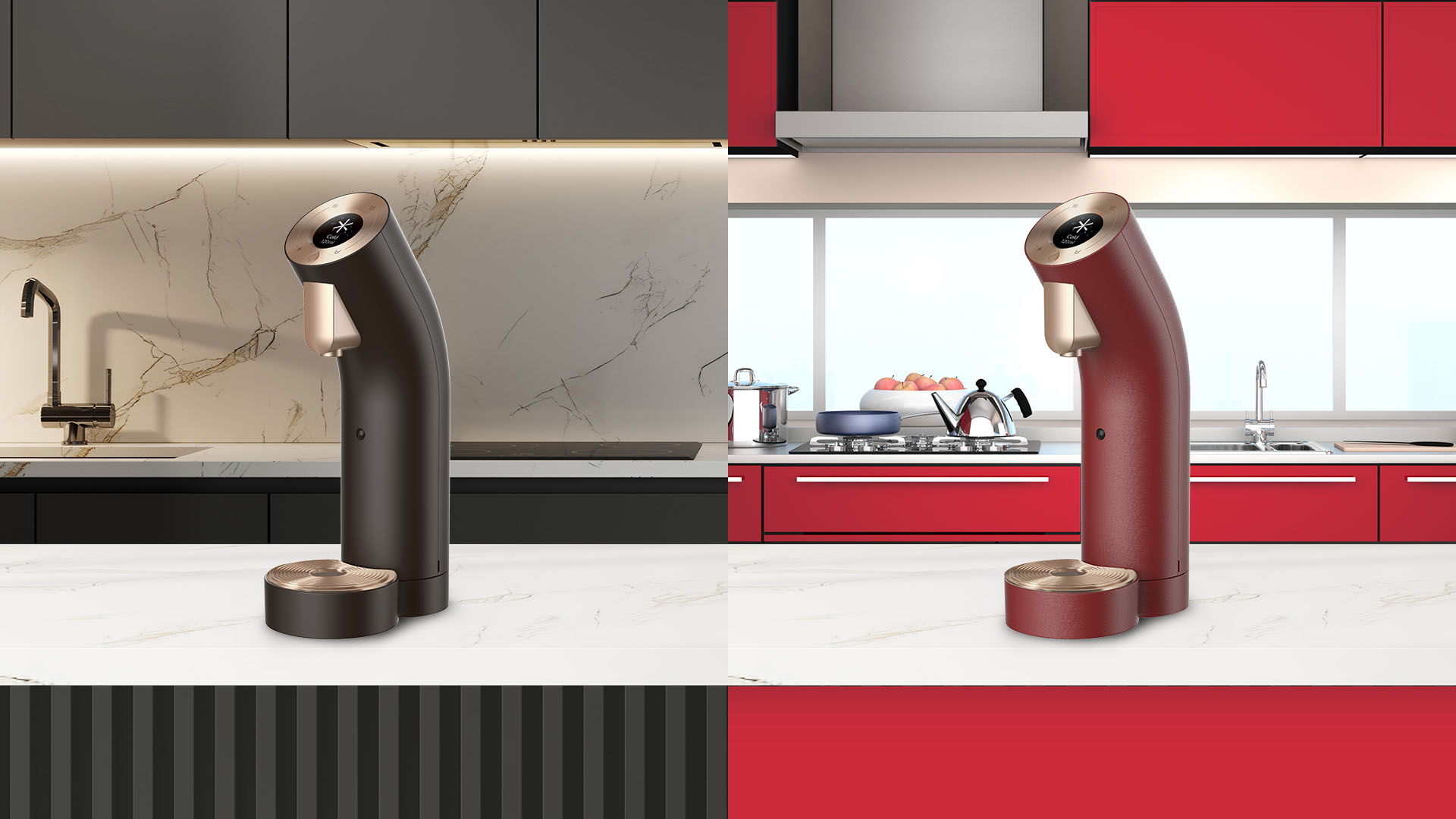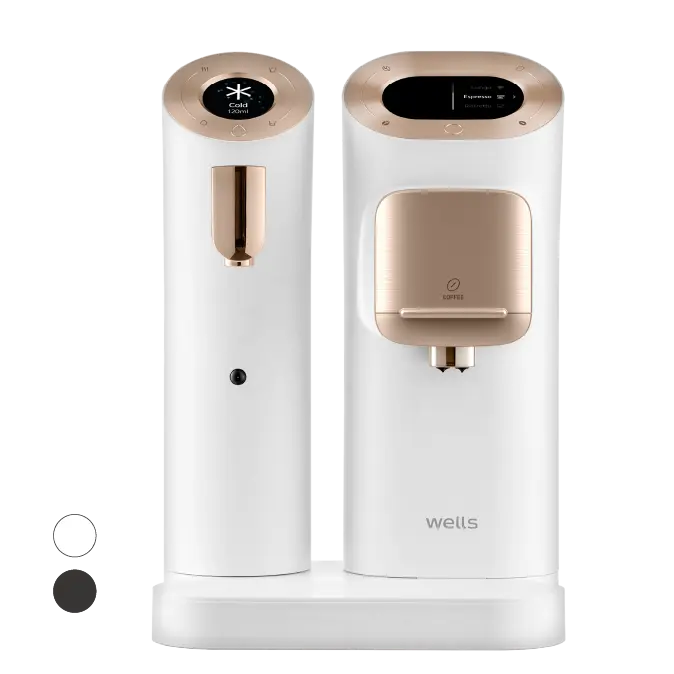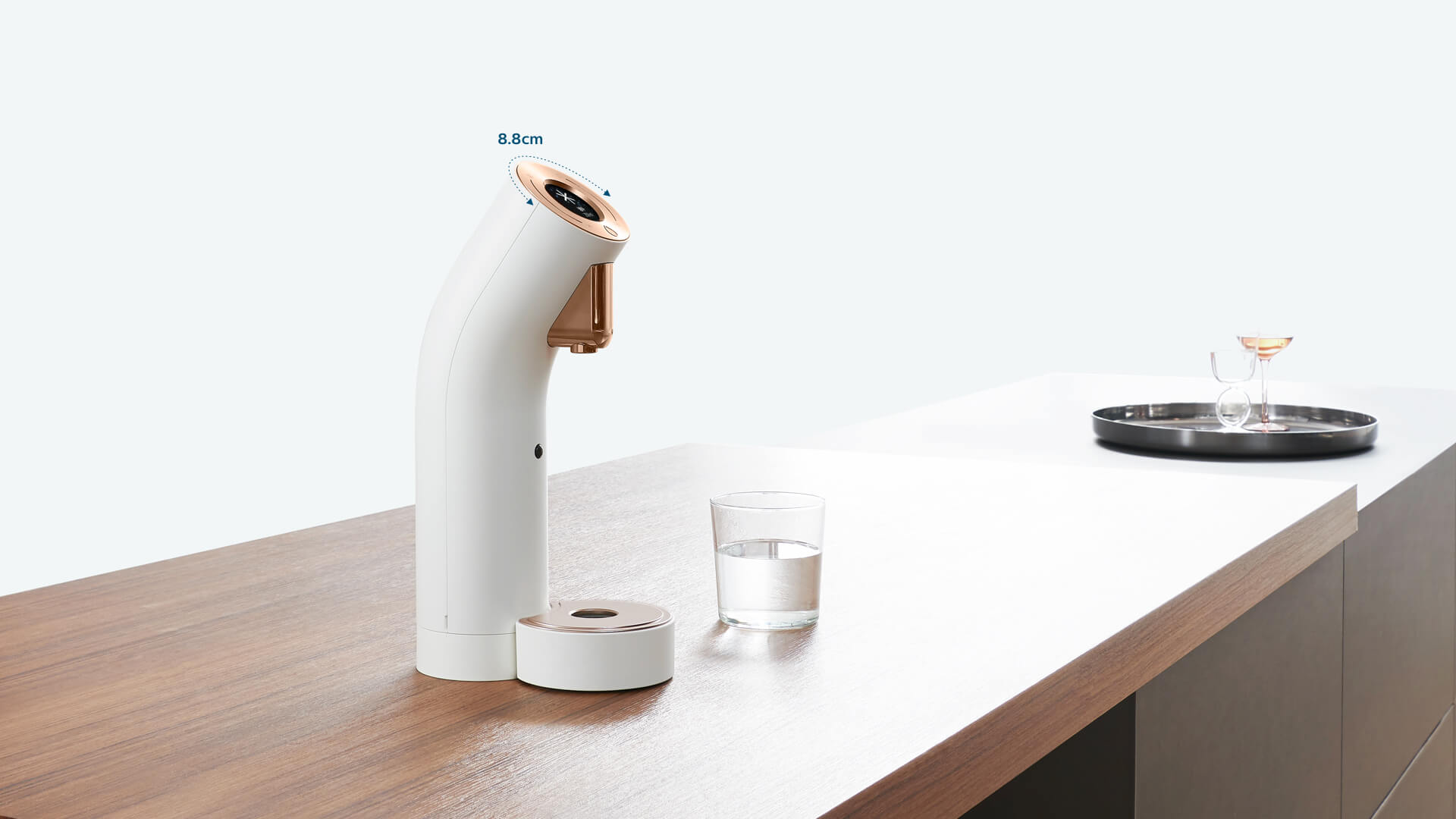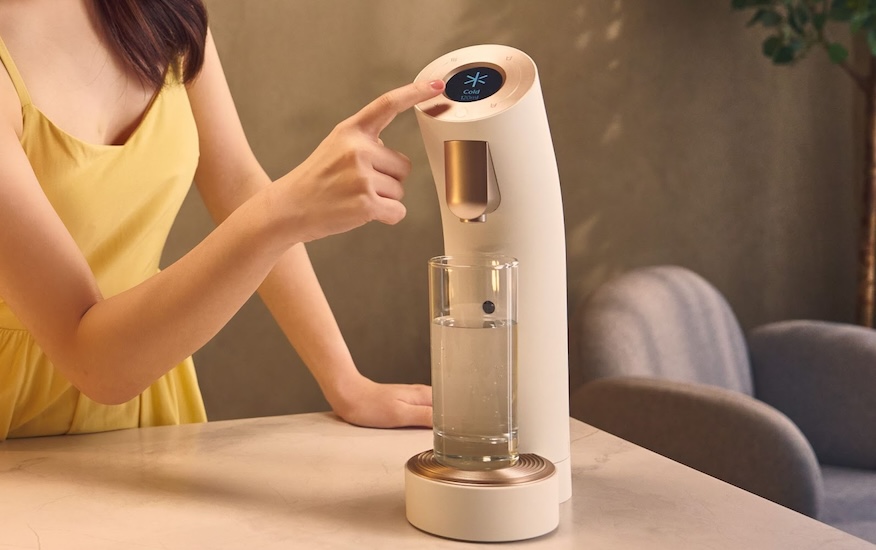Pure water for drinking and household use should be kept hygienic. It has a key impact on how well different parts of the body work, like the digestive system and the systems that control body functions. However, tap water quality remains a concern; the liquid contains unhealthy elements humans can consume. This makes water purification and clean and safe water availability essential for every home.
Malaysians have recently been increasingly concerned with the country’s water quality. They range from industrial pollutants, old water pipelines, and bureaucratic contaminants, among other factors that have made tap water unsafe. Many Malaysians are seeking reliable water solutions for their consumption.
Thus, it can be quite daunting to determine what water purifier to select from the many proposed in the market. This article will help you take the right side for you and your dear people by helping you with the best water purifiers available in the Malaysian markets for 2024.
Why You Need a Water Purifier in Malaysia

Water quality has become a real concern, and that makes drinking water quality paramount, especially in Malaysia. As industrialization and urbanization progress, there is always a high probability of water getting contaminated, implying that there is always the need to have an efficient water purification system at home.
In Malaysia, several factors contribute to the degradation of water quality:
- Industrial Pollution: Car trunks, cans, papers, wood, and plastics, as well as other solid waste products from factories and industrial plants, are thrown away in rivers and lakes, intoxicating people’s water sources with bad chemicals and very toxic metals.
- Agricultural Runoff: Applying pesticides, herbicides, and fertilizers makes the water toxic when farmed into running off.
- Old Pipes: Malaysia’s water pipe system and treatment plant are very old, which can lead to other materials, including lead and metal, contaminating the water.
These problems make contamination possible, so tap water is not always safe, as it is assumed. Depending on municipal treatment alone is not enough to produce safe, free-from-contaminants water.
Common Contaminants Found in Malaysian Tap Water

Several contaminants are commonly found in Malaysian tap water, posing health risks:
- Heavy Metals: Lead, mercury and arsenic contaminate water sources from old pipelines and industrial discharges which has many fatal effects.
- Microorganisms: Some of these diseases, causing bacteria, viruses, and parasites, can survive the water treatment procedures; therefore, a channel of water-borne diseases is always available.
- Chemicals: Floods impact the chemical perspective since pesticides, herbicides, and other industrial chemicals are deposited into water sources, including drinking water.
- Chlorine and Chloramine: Both agents are used in disinfecting water, but they also give the water a chemically treated smell, which can have side effects if ingested for extended periods.
Health Benefits of Using a Water Purifier
Buying a water purifier makes sure your drinking water is safe and tasty, which brings several health perks:
- A cool benefit of the water purifier you use for this cleaning process is cleanliness. The best water purifiers make water safe to drink by getting rid of nasty pollutants like harmful microorganisms.
- Water cleaned by a water purifier and made drinkable becomes even more delicious when chemicals like chlorine and chloramine are added to it.
- Using a water filter helps people avoid getting sick from leftover bacteria, viruses, or parasites in their water.
- A crisp water taste will give one or many reasons to drink the right amounts of water, thereby making life healthier.
Types of Water Purifiers Available in Malaysia

Picking the right water purification system for your home plays a key role in helping you choose the best type. Let’s take a look at some of the most common types of water purifiers focusing on how they clean water, what’s good about them, and what’s not so great:
1. Reverse Osmosis (RO) Purifiers
Reverse Osmosis (RO) water purifiers use a semi-permeable membrane to filter water. This process pushes water through these membranes with high pressure, removing particles like dissolved salts, heavy metals, and other unwanted elements from the cleaned water.
Pros:
- Gets Rid of Contaminants Well: RO purifiers can clean out up to 99% of harmful stuff, including heavy metals, chemicals, and tiny living things.
- Makes Water Taste Better: RO purifiers improve water taste by removing dissolved salts and other impurities.
- Works for Many Situations: These purifiers can clean different types of water, even hard water.
Cons:
- Water Wastage: RO systems waste a lot of water as they clean it.
- Cost: Buying and keeping up RO systems costs more than other water cleaners.
- Removes Essential Minerals: RO cleaners can remove good minerals from water, so you might need to put them back in.
2. Ultraviolet (UV) Purifiers
UV purifiers impact microorganisms in water by using ultraviolet light to kill or disable them. The UV light goes into the cells of bacteria, viruses, and other harmful organisms, messing up their DNA and making them harmless.
Pros:
- Works Well Against Microorganisms: UV purifiers excel at wiping out bacteria, viruses, and other harmful organisms.
- No Chemicals: The process doesn’t use any chemicals, so there’s no chemical stuff left in the water.
- Easy to Keep Up: UV purifiers need little upkeep and last a long time.
Cons:
- Chemical Contaminants Stay Put: UV purifiers can’t eliminate chemical contaminants like heavy metals or dissolved solids.
- Power is a Must: UV purifiers need electricity to keep working.
- Prep Work Required: You should filter the water first to remove particles blocking UV light from reaching microorganisms.
3. Ultrafiltration (UF) Purifiers
Ultrafiltration (UF) purifiers have a membrane with small holes to filter out germs, viruses, and other tiny organisms. This method doesn’t need electricity and can remove particles bigger than the holes in the membrane.
Pros:
- Gets Rid of Tiny Organisms: UF purifiers can remove bacteria, viruses, and other harmful stuff.
- Works Without Power: UF purifiers don’t need electricity, which makes them good for places where power isn’t always on.
- Keeps Good Minerals: Unlike RO purifiers, UF purifiers keep important minerals in the water.
Cons:
- Chemical Removal Has Limits: UF purifiers can’t eliminate dissolved salts, heavy metals, or chemical contaminants.
- Clogs Can Happen: The membrane might get blocked as time passes, so you must clean or replace it.
4. Activated Carbon Purifiers
Activated carbon purifiers use a bed of activated carbon to adsorb impurities from water. The carbon’s porous structure traps contaminants such as chlorine, pesticides, and organic compounds, improving the taste and odor of water.
Pros:
- Improves Taste and Odor: Activated carbon effectively removes chlorine and organic compounds, enhancing water’s taste and smell.
- Chemical Removal: Capable of removing a wide range of chemical contaminants.
- Cost-Effective: Generally more affordable and easy to maintain.
Cons:
- Limited Microorganism Removal: Activated carbon purifiers are not effective against bacteria, viruses, and other pathogens.
- Regular Replacement Needed: The carbon filter needs to be replaced periodically to maintain effectiveness.
5. Hybrid Purifiers
Hybrid purifiers combine multiple purification technologies, such as RO, UV, UF, and activated carbon, to provide comprehensive water treatment. These systems aim to address the limitations of individual technologies by offering a multi-stage purification process.
Pros:
- Comprehensive Purification: Hybrid purifiers can remove a wide range of contaminants, including microorganisms, chemicals, and dissolved solids.
- Enhanced Safety: By combining different technologies, hybrid purifiers ensure a higher level of water safety and quality.
- Versatility: Suitable for various water sources and conditions.
Cons:
- Cost: Hybrid purifiers tend to be more expensive due to the combination of multiple technologies.
- Maintenance: These systems may require more frequent maintenance and filter replacements.
- Complexity: The combination of technologies can make these systems more complex to install and operate.
Key Features to Consider When Choosing a Water Purifier

Filtration Efficiency
When picking a water purifier, you should think about how well it filters. This shows how good the filter is at getting rid of stuff from the water that shouldn’t be there. To make your money count, go for ones that can do a good job of taking out things like germs, viruses, heavy metals, and chemicals. The better it filters, the cleaner and safer your drinking water will be.
Capacity
The size of a water purifier is the ability to filter a given amount of water for a given time. This is especially the case given that high water use is characteristic of many households in Malaysia today. Consider how many gallons of water you use daily and choose a water purifier that will give you the required amount of water in the least time it will do so. Larger types are suitable for households with many people, while a couple needing a purifier may suffice with models of lower capacities.
Maintenance Requirements
It is very important to conduct periodic servicing so that your water purifier will continue functioning as intended. A few purifiers are fussy and must be cleaned or have their filters changed frequently. It is recommended to look at the maintenance of all the purifiers before buying them and to establish whether you can meet the maintenance demands and whether they are affordable. Make sure to select filters that can be removed and installed rather easily, and the guide to their maintenance is unambiguous.
Cost (Initial and Ongoing)
The cost of a water purifier is the initial cost of the device and its cost of ownership, representing the cost of filters and maintenance. When selecting the model, you should consider that, though there are cheaper models, their application in the future can lead to accruing more costs than anticipated. It is always advisable to spend more initially on purchasing a good quality cleaner, which will cost you less when servicing or frequently changing the parts. Make a comparison between different models and the costs linked to it to achieve the most affordable prices.
Brand Reputation and Reviews
Word of mouth and customers’ testimonies go a long way in giving an honest account of a water purifier’s efficiency. Research the available brands in the market and choose those companies that are reputed for their superior quality products and excellent customer relations. It is also good to read other people’s opinions as they assist in determining the strengths and weaknesses of different models. Products that popular and reputable producers endorse will likely be long-lasting and good performers.
Certification and Standards
Ensure the water purifier you select complies with the right certification and standard. When a particular brand of purifier carries the label of NSF International or the Water Quality Association (WQA), it must have undergone tests for safety and efficiency. These certifications are designed to give confidence that the purifier will filter out contaminants to produce safe drinking water.
Why Wells Malaysia is the Best Water Purifier for Your Home

Wells Malaysia is known for its cutting-edge water purifiers that feature comprehensive filtration systems. Their products typically include multiple filtration stages, such as sediment filters, activated carbon, and UV sterilization. The brand is also recognized for its tankless designs, which ensure a continuous supply of fresh, purified water without the risk of secondary contamination.
- 9-step NanoFiltration: Effectively removes heavy metals, microorganisms, and other contaminants.
- Tankless Design: Reduces the risk of bacterial growth and ensures water is always fresh.
- Compact and Stylish: Ideal for modern kitchens with limited space.
Choose Wells Malaysia for Clean, Safe Drinking Water
Choosing the right water purifier is crucial for ensuring access to clean and safe drinking water, which is essential for maintaining good health. With the growing concerns about water quality in Malaysia, investing in a reliable water purifier has become more important than ever.
Based on our analysis, the top water purifier brands in Malaysia for 2024 include Wells Malaysia, Panasonic, 3M, Aqua Kent, and Coway. Each of these brands offers unique features and benefits, from advanced filtration technologies to user-friendly designs, catering to various needs and preferences.
When making your final decision, consider factors such as filtration efficiency, capacity, maintenance requirements, cost, brand reputation, and certifications. By carefully evaluating these aspects, you can select a water purifier that best suits your household’s needs and ensures the health and well-being of your family.
Remember, the right water purifier can make a significant difference in the quality of your drinking water and, ultimately, your overall health. Choose wisely and enjoy the peace of mind that comes with knowing your water is safe and clean.







